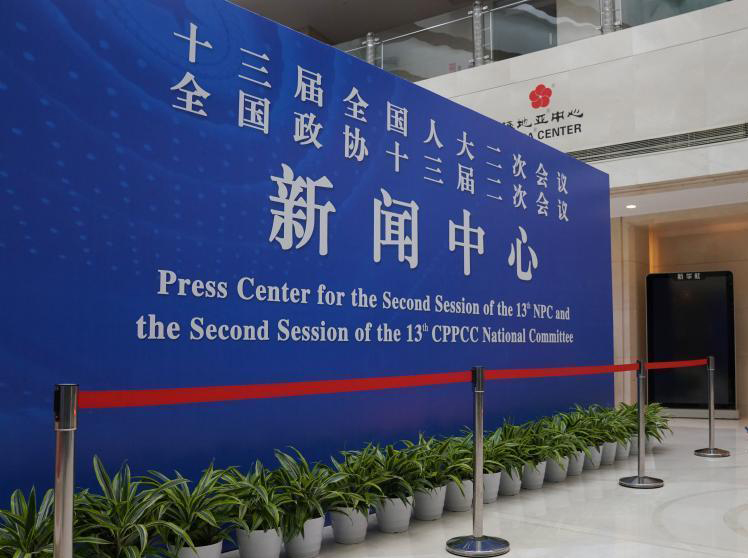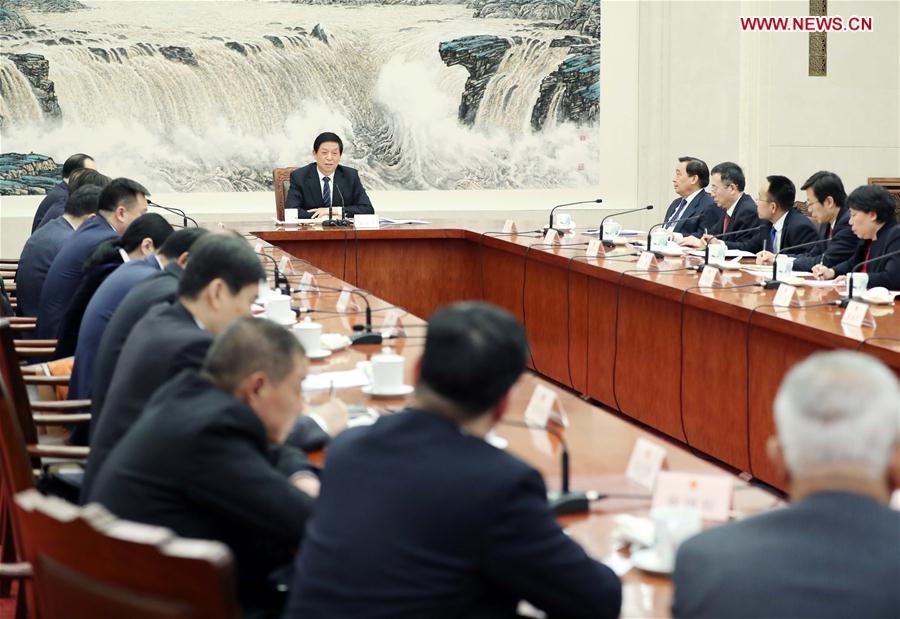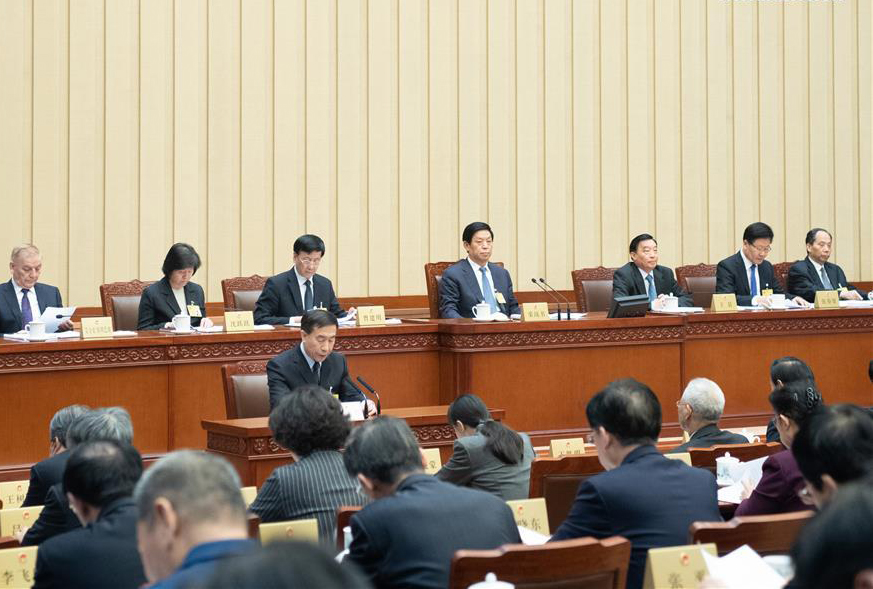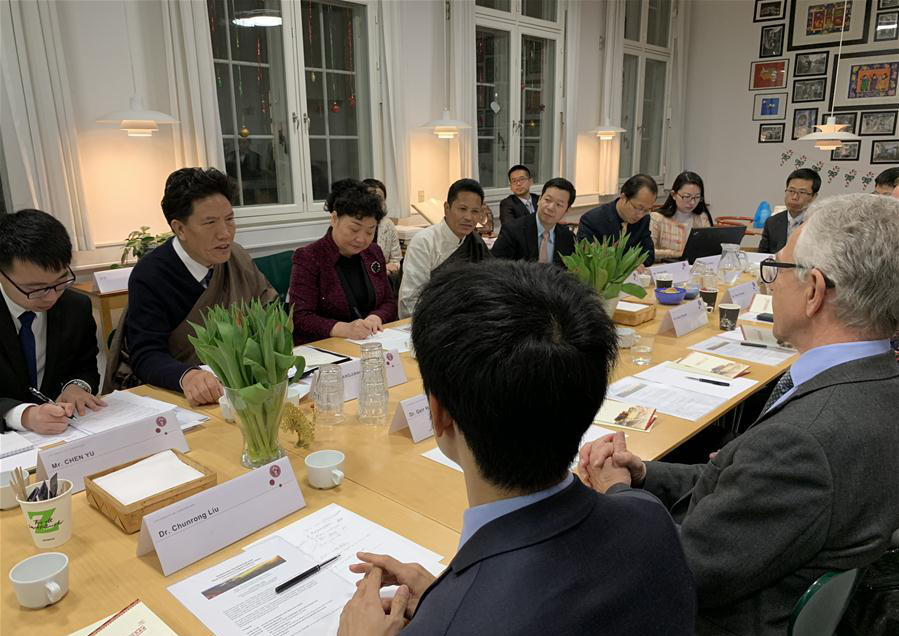China's top legislature prepares for upcoming annual session
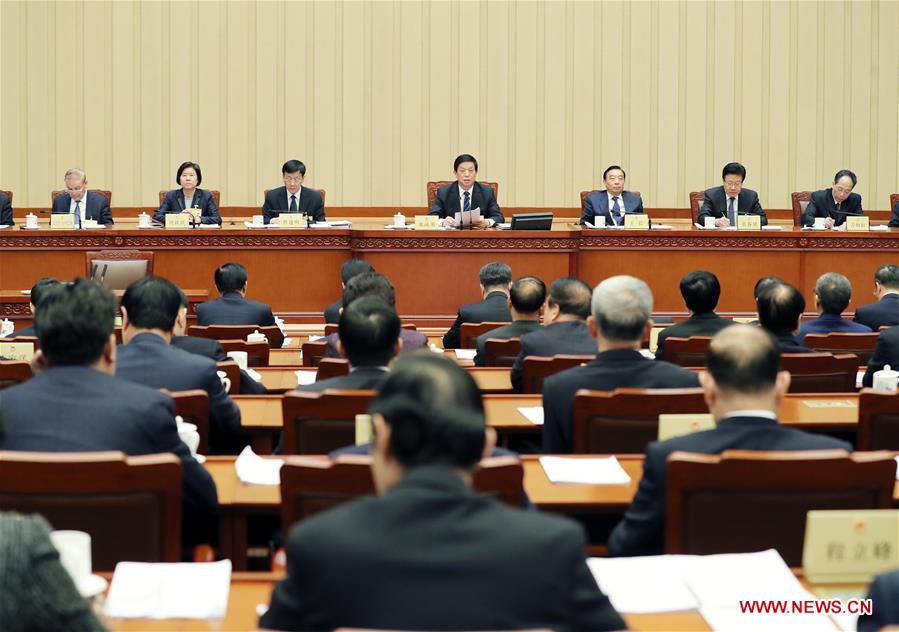
Li Zhanshu, chairman of the National People's Congress (NPC) Standing Committee and a member of the Standing Committee of the Political Bureau of the Communist Party of China Central Committee, meets with the deputies attending a bimonthly session of the NPC Standing Committee in Beijing, capital of China, Feb. 27, 2019. [Photo/Xinhua]
Major documents for the second annual session of the 13th National People's Congress (NPC), scheduled to open on March 5, have been adopted Wednesday at a bimonthly session of the NPC Standing Committee.
Li Zhanshu, chairman of the NPC Standing Committee, presided over the closing meeting of the session.
Over the past two days, the 171 members in attendance adopted the drafts of the agenda and the presidium and secretary-general name lists of the upcoming annual session, which will be submitted to a preparatory meeting before the session. They also passed a name list of non-voting delegates of the session.
The NPC Standing Committee's work report had also been endorsed in principle. Li was entrusted by the committee to deliver the report to the second session of the 13th NPC.
Li called for concerted efforts towards holding a successful annual legislative session.
Describing the upcoming session as a key meeting, Li said it would help bring people's mind and action in line with the decisions and plans made by the Central Committee of the Communist Party of China and rally people to work together to accomplish various tasks of the year to celebrate the 70th anniversary of the founding of the People's Republic of China and its great achievements.
Li stressed the spirit of democracy, unity, result-seeking and striving for the progress of the annual session.
At the bimonthly meeting, lawmakers deliberated on two reports respectively focusing on pollution control and poverty relief.
Other documents adopted include a report on the qualification issues of certain NPC deputies, and appointment and dismissal matters.
After the closing meeting, Li presided over a lecture on the implementation of the country's rural vitalization strategy.
Tibet Stories
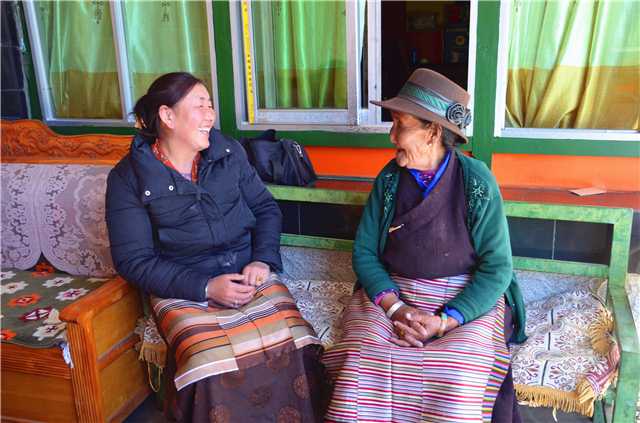
A Tibetan serf, yesterday and today
Since 1959, the freed serfs in China's Tibet autonomous region have experienced tremendous i...
Editor’s Choice
- Tibet issues yellow alert for icy roads
- Senior CPC official meets Panchen Lama
- Chinese archaeologist working on Third Pole to discover ancient human traces
- Employment rate of college graduates from Tibetan-inhabited areas of Qinghai reached 90% in 2018
- Water level of Qinghai Lake rises by 2.5m in a dozen of years
Latest News
- Egypt uncovers intact 4,400-year-old pharaonic tomb near Giza pyramids
- UN climate conference adopts rulebook for implementing Paris deal
- Service of Chinese Americans in World War II to be formally recognized
- Germany suffers severe Santa shortage as Christmas draws near
- 7-year-old in good health, border agents said; then she died
